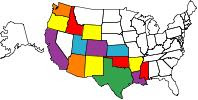For “Scripture Sunday”:
Celebrating the Feast of Tabernacles in Today’s World
“This seven-day biblical festival gives you a preview of the coming wonderful age beyond today.
Celebrating the Feast gives us a glimpse of the world beyond today—an incredible preview of the age to come. Take time to learn more about it.
Have you ever heard of the Feast of Tabernacles? Did you know that Jesus Christ celebrated it in the first century? Did you know that, even today, thousands of Christians follow His example by observing it every year?
There is great significance to the Feast of Tabernacles for Christians today. We’ll take a look at what this festival means and why it’s so important to God that you observe it too.
 God tells us that we have a special appointment with Him at the Feast of Tabernacles—a unique invitation to a personal meeting with Him!
God tells us that we have a special appointment with Him at the Feast of Tabernacles—a unique invitation to a personal meeting with Him!
We’ll examine why thousands of Christians the world over take time off of work and away from school to gather together, staying in temporary dwellings, to worship God and Jesus Christ. We’ll see how this biblical festival holds incredible meaning for all of mankind!
A vision of God’s Kingdom
Three of Jesus’ disciples were part of a life-changing event that’s recorded in the Gospels. You might be familiar with what happened, but most people don’t realize that it actually has everything to do with the Feast of Tabernacles.
Let’s notice the details of the event commonly called the Transfiguration. One day Jesus was talking to His disciples and said something incredible: “Assuredly, I say to you that there are some standing here who will not taste death till they see the kingdom of God present with power” (Mark 9:1).
No doubt they didn’t know how soon Jesus’ words would come true! “Now after six days Jesus took Peter, James, and John, and led them up on a high mountain … and He was transfigured before them. His clothes became shining, exceedingly white … And Elijah appeared to them with Moses, and they were talking with Jesus. Then Peter answered and said to Jesus, ‘Rabbi, it is good for us to be here; and let us make three tabernacles’” (Mark 9:1-5, emphasis added throughout).
What an amazing event! In a vision, these disciples were suddenly whisked into the future to see Jesus Christ in His glory in His Kingdom!
Don’t miss Peter’s reaction. What did Peter associate with this vision? He said that they should make tabernacles.
What does that have to do with anything? Peter clearly related the Feast of Tabernacles to the idea of a tabernacle or a temporary dwelling. Why does this matter to Christians today? To answer that question, let’s look at a bit of background information.
A commanded celebration
In giving His laws to Moses, God said: “Speak to the children of Israel, saying: ‘The fifteenth day of this seventh month shall be the Feast of Tabernacles for seven days to the Lord. On the first day there shall be a holy convocation …’” (Leviticus 23:34-35).
You may be thinking that this is just an Old Testament thing for the Jews. It’s not. It’s a Christian thing! Do you realize that your Savior, Jesus Christ, set the example of observing this feast?
The book of John records this about Jesus and His brothers going to Jerusalem for the Feast of Tabernacles: “But when His brothers had gone up, then He also went up to the feast, not openly, but as it were in secret. Then the Jews sought Him at the feast, and said, ‘Where is He?’ … Now about the middle of the feast Jesus went up into the temple and taught” (John 7:10-11; John 7:14).
Did you notice that everyone expected Jesus to be at the Feast of Tabernacles? Why? Because it was His lifelong practice to celebrate God’s festivals as required in God’s laws. Even when His life was threatened, He went to celebrate the Feast of Tabernacles!
You see, Christ knew that this was a commanded yearly celebration, and it wasn’t intended just for the Jews. Leviticus 23 rightly calls the occasions listed here “the feasts of the Lord” (Leviticus 23:2). They weren’t just feasts for Israel or celebrations just for the Jews. Jesus set the example by showing they were for everyone and that they continue to be God’s festivals.
The early Church continued in Jesus’ example of celebrating the feasts. He celebrated the Feast of Tabernacles every year and taught about its great significance. Scripture instructs us that, as His followers, we are to walk as He walked—to live as He lived (Isaiah 25:6-7).
When God says we are to celebrate the feasts, He uses a Hebrew word that means “appointed times” or “appointments.” Do you realize that God has set up a number of appointments with you to keep? These are also called “holy convocations” or “sacred assemblies.” Jesus knew that we can learn valuable lessons by meeting, fellowshipping and observing the Feast together.
God tells us that we have a special appointment with Him at the Feast of Tabernacles. Now imagine that! God has given us all a unique invitation to a personal meeting with Him!” Continued at: https://www.ucg.org/beyond-today/beyond-today-magazine/celebrating-the-feast-of-tabernacles-in-todays-world
_______
Feast of Tabernacles
“The Feast of Tabernacles lasts for seven days and is a time of joy and excitement for Christians around the world.
The Feast of Tabernacles is also known as the Feast of Ingathering. It pictures the future 1,000-year rule of Jesus Christ on earth with His saints. After His return, Jesus will set up the Kingdom of God and Isaiah describes this future period as a time of peace when all people will be taught to know, love and obey God. The nature of animals will change, the earth will become highly fertile, and, most importantly, “The earth shall be full of the knowledge of the Lord as the waters cover the sea.” With Satan’s evil influence removed, all of humanity will at last learn God’s ways.
During the seven days of the Feast of Tabernacles, the United Church of God organizes sites all over the world where members gather to enjoy fellowship, worship God and study His Word each day of the festival. The first day is a special annual Sabbath. Find more about this year’s Feast of Tabernacles at http://feast.ucg.org .
(See: Leviticus 23:34; Exodus 23:16; Revelation 20:4-6; Isaiah 2:2-4; Isaiah 11:6; Isaiah 11:9; Isaiah 35:1; Isaiah65:25)”
________
Update.
I had hoped that the van’s alternator could be removed, repaired at the alternator repair shop, and then re-installed, but the mechanic who had sorted out the grounding problem could not be contacted again. So Chris, my neighbor, follwed me to a very expensive, but good, mechanic shop in Willis, and I left it there. I didn’t dare go any further with it, as it still running on battery only. When that battery dies you are “dead in the water!”.
As I have explained before, some churches celebrate The Feasts at different times because of the way they calculate from a New Moon. Ours is celebrating The Feast of Tabernacles this week. Lauri picked me up for the Holy Day, Wednesday, the first day of The Feast of Tabernacles. For that church potluck, I baked two salmon dishes, one spicy and one regular, and served it sliced on pretty cut-glass plates with savory crackers. Not many came so we had lots of dishes left over, which we froze for another day.
The Bible readings were Lev.22:2-23:44, Zech. 141-21, and John 1:1-14 where it says He pitched his tent among us. Considering that Jesus was born during the Feast of Tabernacles that year, it seems very fitting.
Haven’t you noticed how nativity scenes looks very much like the scenes of The Feast of Tabernacles? This explains: https://marbiesblog.wordpress.com/2012/10/02/america-israel-christopher-columbus-and-the-feast-of-tabernacles/ and this: http://christianitybeliefs.org/end-times-deceptions/messiah-was-born-on-the-feast-of-tabernacles-as-elohim-came-to-dwell-with-us/
My van was being worked on near the church, so I picked it up on the way home. It now has a new alternator, $$ Ouch!! I know Lauri is glad to have me mobile again, not relying on her, and others, to get me around.
On Thursday, my daughter, Wendy, came to visit me, and we went to lunch at a marina nearby with a view of Lake Conroe. Wendy likes to choose restaurants where she can look at the water. We had a great visit. We started out on the covered terrace, but it was cold and windy so we had to go inside and look at the lake through the windows. I had Nachos Supreme and took a lot of the tortillas home, and made them into Tortilla Soup with chicken broth, non-GMO corn, tomatoes, onions, and celery, etc, for the church potluck.
I also made some dried plums into plum puree, and then didn’t know what to do with it, other than putting it on cereal, so I made Plum Puree Muffins for the church’s Sabbath potluck which I was able to go to in my van, under my own steam, for the first time in two weeks.
The Bible readings were Psa. 100, Deut. 33:1-34:12, Josh. 1:1-18, Rev. 22:1-5 and the Teaching was about The Feast Days and the Messiah is our Passover. Lev. 23 tells us to observe the Holy Days.
 URGENT: Over a Billion Bees Starving After Hurricane Michael
URGENT: Over a Billion Bees Starving After Hurricane Michael 000 PhotoDisc, Inc
000 PhotoDisc, Inc FamVeld/iStock/Thinkstock
FamVeld/iStock/Thinkstock
 Katie Moum/Unsplash
Katie Moum/Unsplash











